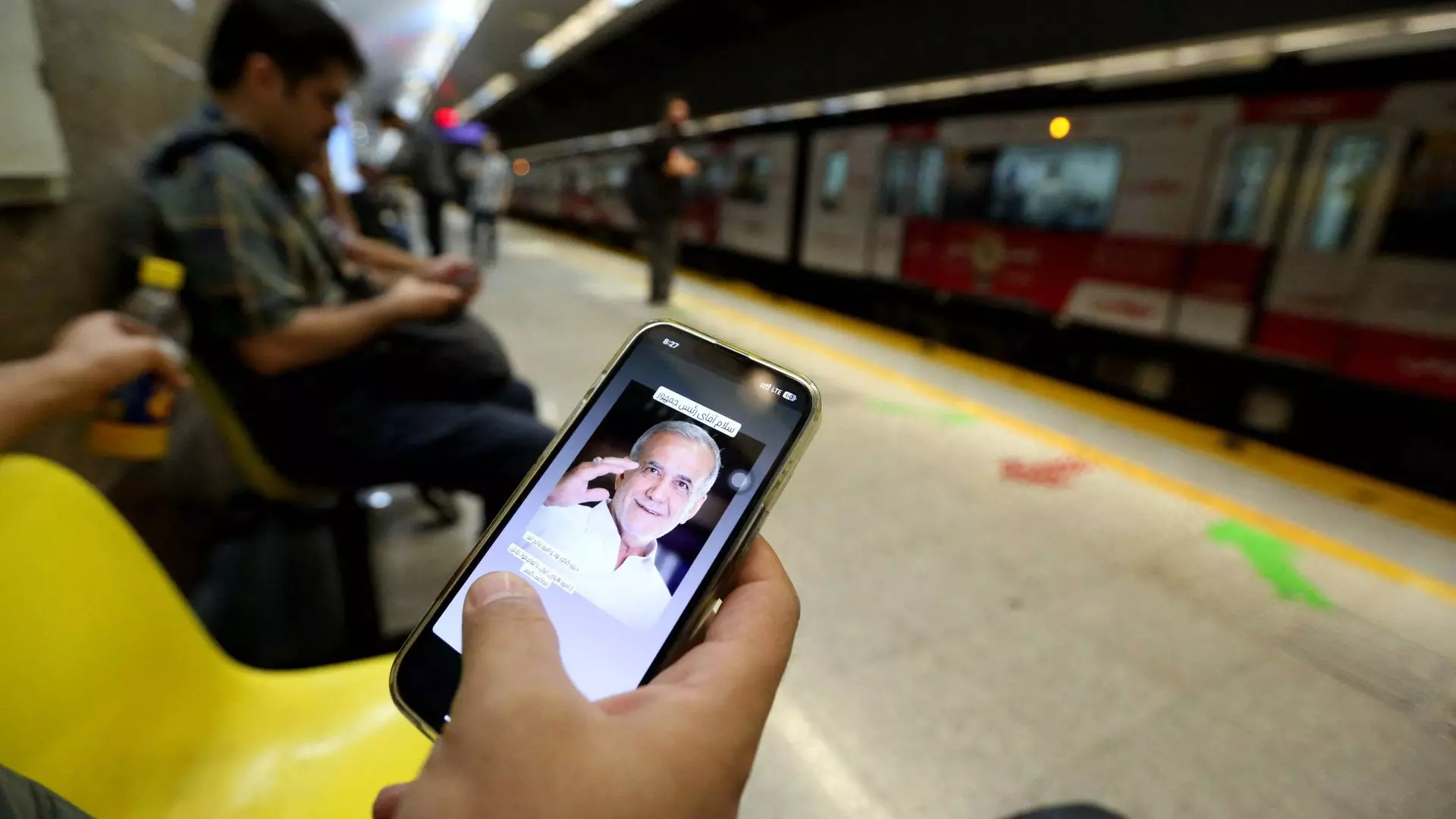
Tehran: Iranians have picked reformist Masoud Pezeshkian as the Islamic republic’s next president in a election to replace Ebrahim Raisi who was killed in a helicopter crash in May. Pezeshkian, a 69-year-old heart surgeon, won the largest number of votes in the runoff against ultraconservative Saeed Jalili, taking around 16 million votes or 54 percent of about 30 million cast. He rode on support from the country’s main reformist coalition and many Iranians who feared a continued hardline grip on power.
What has Pezeshkian promised?
In campaigning, Pezeshkian called for “constructive relations” with Western countries to “get Iran out of its isolation”. He pledged to try to revive a 2015 nuclear deal with the United States and other powers, which imposed curbs on Iran’s nuclear activity in return for sanctions relief. The deal collapsed in 2018 after Washington withdrew from it. Within Iran, he vowed to ease long-standing internet restrictions and to “fully” oppose police patrols enforcing the mandatory headscarf on women, a high-profile issue since the death in police custody in 2022 of Mahsa Amini.
The 22-year-old Iranian Kurd had been detained for an alleged breach of the dress code, and her death sparked months of deadly unrest nationwide. Pezeshkian also pledged to involve more women and ethnic minorities such as Kurds and Baluchis in his government.
He has also promised to reduce inflation, now hovering at around 40 percent, which he says has “crushed the nation’s back” in recent years. In one debate with Jalili, Pezeshkian estimated that Iran needs $200 billion in foreign investment, which he said could only be provided by mending ties across the world.
What are his powers?
Unlike in many countries, Iran’s president is not head of state, and the ultimate authority rests with the supreme leader — a post held by Ayatollah Ali Khamenei for 35 years. As president, Pezeshkian will hold the second-highest ranking position and will have influence over both domestic and foreign policy. Setting economic policy will be within his powers. However, he will have limited power over the police, and virtually none over the army and the Islamic Revolutionary Guard Corps, the military’s ideological arm. The police, army and IRGC all answer directly to the supreme leader. Pezeshkian will be tasked with implementing state policies outlined by Khamenei.
What do the people expect?
Iranians have mixed feelings towards Pezeshkian’s victory, with some expressing happiness and others sceptical. “We really needed a literate president to solve the economic problems of the people,” said Abolfazl, a 40-year-old architect from Tehran who asked only his first name be used. But Rashed, a 40-year-old barber, said Pezeshkian’s win “doesn’t matter”, and believed the “situation will only get worse”. Maziar Khosravi, a political analyst and journalist, said the new president “did not promise an immediate resolution to problems” in Iran. “People voted for him because they realised his approach was about interacting with the world, which was completely different from the current government,” he said. Political commentator Mossadegh Mossadeghpoor said people are cautiously “hopeful that he can make some good changes and resolve some of the country’s issues”, especially the economy.
What challenges does he face?
Analysts say Pezeshkian will face serious challenges because conservatives still dominate state institutions. One such institution is parliament, which was elected in March and is dominated by conservatives and ultraconservatives. Parliament speaker Mohammad Bagher Ghalibaf, who ran in the first round of the election, backed Jalili in the runoff. Two other ultraconservatives who dropped out a day before the first round also backed Jalili. “Dealing with the issue of hijab or any other ideological matter is out of the hands of the president,” Mossadeghpoor said, noting that this is a religious matter. Ali Vaez of the International Crisis group says Pezeshkian will face an uphill battle to secure “social and cultural rights at home and diplomatic engagement abroad”.
On the nuclear issue, Mossadeghpoor said Pezeshkian may be able to “resolve it if it is the system’s will”. Diplomatic efforts to revive the 2015 deal with Washington and Europe have faltered over the years. “No one should expect Iran’s approach to foreign policy to fundamentally change,” said Khosravi. Iran’s presidential election came amid heightened regional tensions over the Gaza war between Israel and Tehran’s ally Hamas, which has drawn in other Iran-backed militant groups in Syria, Lebanon, Iraq and Yemen. Mossadeghpoor says Pezeshkian will “neither reduce Iran’s missile capabilities, nor will he stop supporting resistance front groups”.






